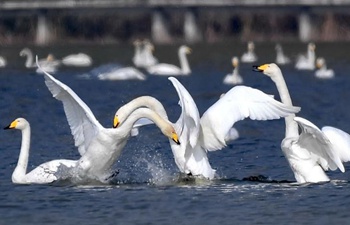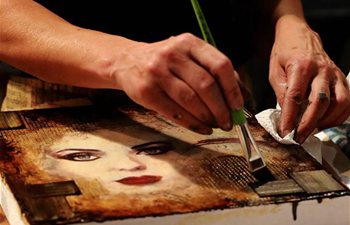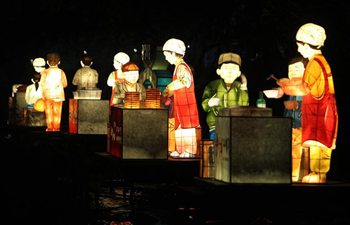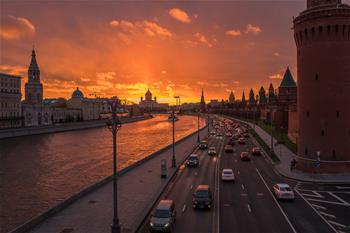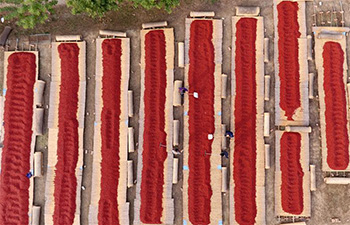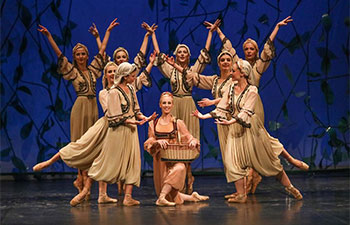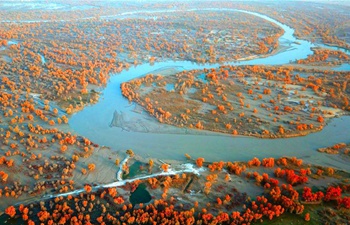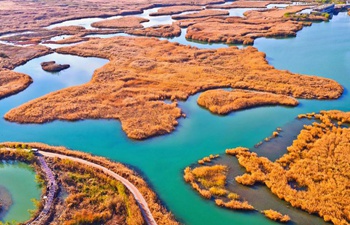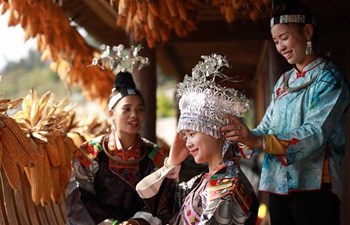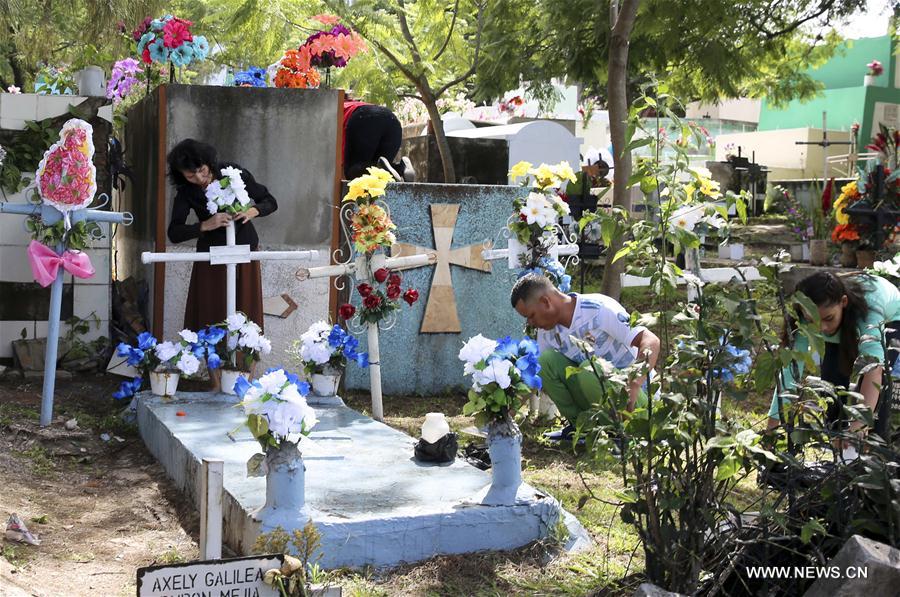
A woman places a floral offering on the cross of the tomb of a relative during the celebration of the Day of the Dead, in a cemetery in Tegucigalpa, capital of Honduras, Nov. 2, 2017. (Xinhua/Rafael Ochoa)
QUITO, Nov. 2 (Xinhua) -- Countries across Latin America celebrated the Day of the Dead on Thursday, paying tribute to friends and family members who have passed away.
At once both solemn and festive, the day is mainly celebrated in countries with large indigenous communities, such as Bolivia, Mexico, Ecuador and Peru, where pre-Hispanic traditions survive.
Customarily, these traditions hold that the spirits of the departed return this time of year, and families welcome them back by erecting altars at home with the personal items or favorite foods and beverages of the deceased.
Families also visit their local cemeteries, usually from the night of Nov. 1 throughout the following day to clean their tombs, place fresh flowers, light candles and even share a meal with the visiting souls.
Unlike most Western countries, where visiting the grave of a loved one is a solitary affair that takes place on the anniversary of the death of each individual, Latin American societies remember their deceased ones in a community. This communal aspect lends a festive, carnival-like atmosphere to what would otherwise be a sedate and even sad occasion.
Cemeteries are often bustling as locals gather, bringing with them flowers, food and maybe even music.
In Ecuador's capital Quito, America Lopez, 75, paid her respects to her late mother and father at the San Diego Cemetery in the historic district of San Roque.
"Visiting the cemetery to pray at my parents' grave is a tradition that I cannot forgo. It is a time to recollect and reunite with them, as they were an important part of my life," Lopez told Xinhua.
All around her, indigenous locals sat around the tombs, talking and serving food to the deceased, as custom dictates.
In Bolivia, President Evo Morales, the country's first indigenous head of state, greeted the age-old tradition, and acknowledged the visit and the subsequent return of the spirits to the afterlife.
"We say goodbye to the souls of our dearly departed, brothers and sisters who sacrificed their lives for the liberation of Bolivia and the nationalization of our natural resources," Morales twitted as translated.
Bolivia's Deputy Minister of Decolonization Felix Cardenas noted the celebration, also known as All Saints Day, continues despite encroaching westernization.
"This traditional festivity is well rooted in Bolivia. The most important thing is that while Halloween is now in Bolivia, thanks to trade, Todos Santos (All Saints Day) is being revalued, thanks to culture," Cardenas told Xinhua.
A heritage common to many Latin American communities, the Day of the Dead does have local colors, especially in the way foods are prepared exclusively for this occasion.
Ecuadorians prepare colada morada, a purple drink made of purple corn mixed with fruits and spices.
In Mexico, bakeries practically stop making any other kind of bread to offer pan de muerto, or bread of the dead, a type of sweet bun sprinkled with sugar and decorated with bone-shaped dough.
In Peru, Federico Quispe from the south Andean region of Ayacucho was accompanied by his wife and three children to the capital Lima to pay his respects to his mother, who is buried at the local El Angel Cemetery.
"The dead are not dead, they are alive like you and me, and their spirits are nourished by the gifts we bring them," he said, recalling anecdotes about his mother and cheerfully retelling them.




